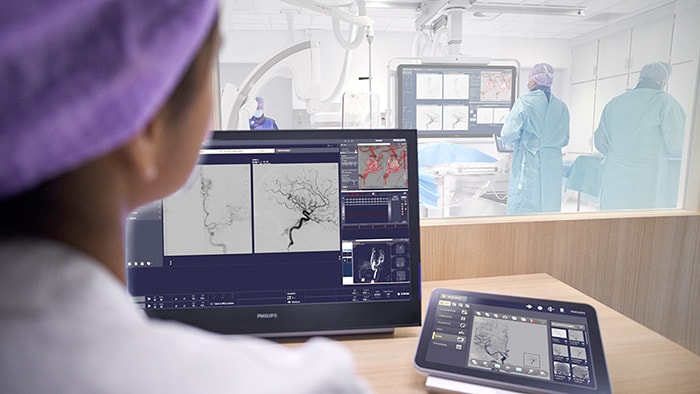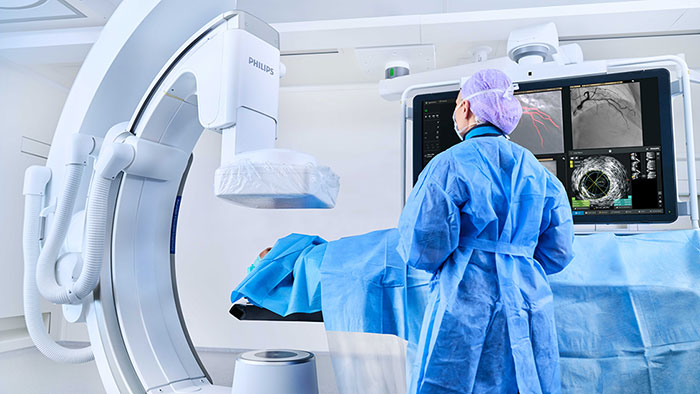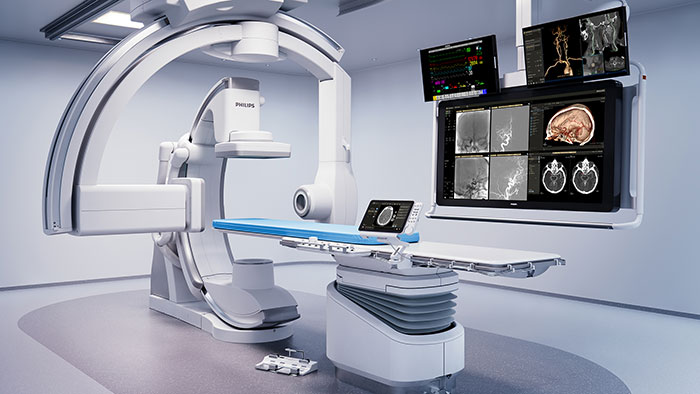Amsterdam UMC selects Philips technology for advanced Cardiovascular Intervention Center
Collaboration aimed at improving workflows and patient outcomes, enabling better care for more people
Jul 18, 2024 | 3 minute read
Amsterdam University Medical Center (Amsterdam, The Netherlands) and Philips are collaborating on the hospital's new Cardiovascular Intervention Center (CVIC), which will bring together the specialties of interventional cardiology, electrophysiology, vascular interventional radiology, and interventional neuroradiology. Last week, an agreement was signed for Philips to supply the center with its latest and most innovative technology solutions.
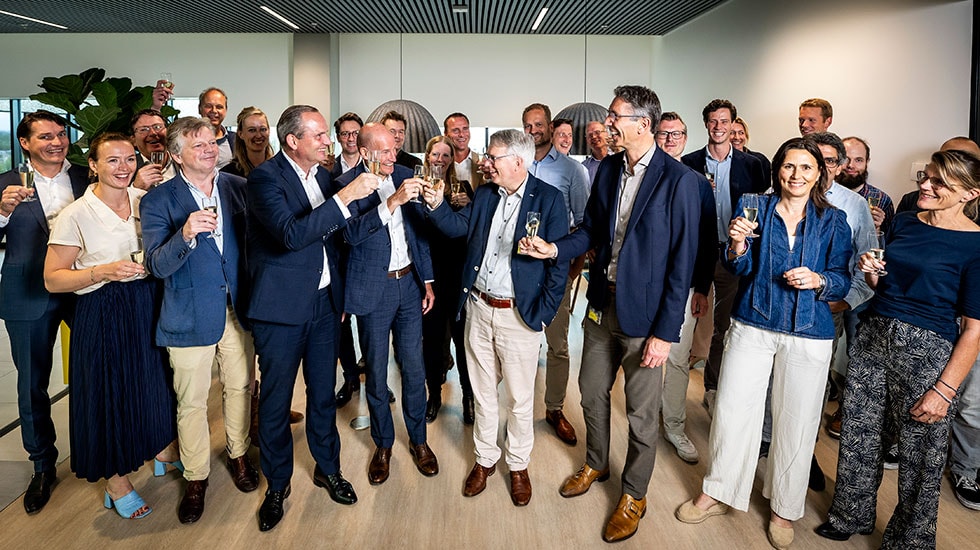
In Amsterdam UMC's new Cardiovascular Intervention Center, physicians will be able to treat patients with cardiovascular diseases using Philips technology through minimally invasive and image-guided surgeries. Philips will provide Azurion image-guided therapy systems, Ingenia Ambition MRI systems with helium-free operations, hemodynamic monitoring systems for advanced blood circulation and heart measurements, and 10 years of service to the center. A large number of the Azurion systems and monitoring systems will be used by interventional cardiologists for procedures such as angioplasties. The other two Azurion systems will be used by interventional radiologists for other minimally invasive vascular procedures, such as those involving the brain or the peripheral vascular system in the legs.
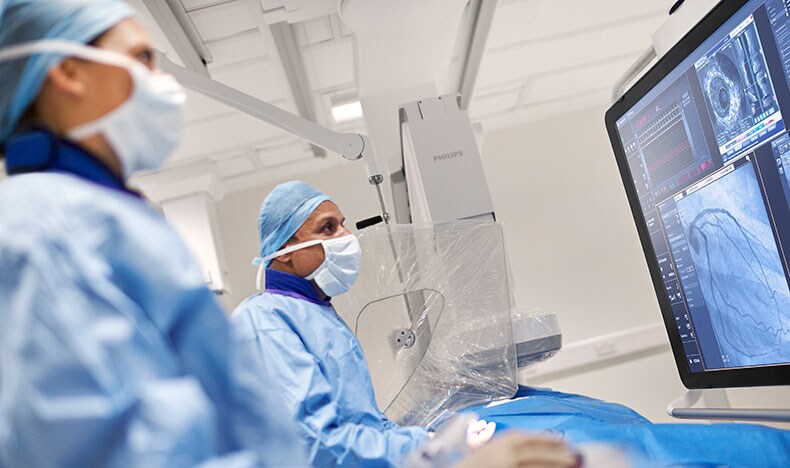
Philips image-guided therapy system – Azurion
Amsterdam UMC is one of the pioneers in MRI-guided cardiac interventions. One of the two MRI systems will support these procedures in combination with an Azurion system. The other MRI scanner will be used for research and diagnostics.
“Amsterdam UMC will be using our technology to treat cardiovascular diseases. These conditions represent an enormous disease burden. According to figures from the Dutch Heart Foundation, 1.7 million people in the Netherlands have cardiovascular disease,” says Léon Kempeneers, Market Leader Philips Benelux. “Philips develops technology solutions for the diagnosis and treatment of cardiovascular diseases, such as our Azurion systems designed for minimally invasive and image-guided treatments. With this technology, we can help hospitals perform cardiovascular procedures better and faster. The Azurion was developed in Best, and is used by hospitals in 90 countries worldwide. Every second, somewhere in the world, a patient is treated with our Azurion.”
Minimally Invasive Treatment of Cardiovascular Diseases
Minimally invasive treatments are performed through small incisions in the body, for example in the wrist or groin. Using imaging techniques such as the X-ray imaging of the Azurion, doctors can navigate catheters and other surgical instruments through blood vessels and reach the heart. Procedures such as replacing a heart valve or removing a clot in a blood vessel, coronary artery, or cerebral vessel can be performed minimally invasively. Minimally invasive procedures are associated with benefits for both the patient and healthcare providers because patients' recovery time is shorter compared to open surgeries. Additionally, the risk of complications is smaller, and the procedures cause less pain.
Bert van Meurs, Chief Business Leader Precision Diagnosis and Image Guided Therapy, who was also present at the signing, adds: “Together with our clinical partners, including various university medical centers in the Netherlands, we continuously innovate to develop even better technology for minimally invasive and image-guided treatments. We focus on improving care outcomes, as well as the optimal and enjoyable use of our technology by doctors, surgical assistants, nurses, and technicians. By thoroughly mapping the challenges of healthcare providers and then innovating together, we can better support their care processes and, consequently, themselves. Our goal is for healthcare providers to work more efficiently with our technology helping them to provide better care to more patients."
Sources [1] Dutch Heart Foundation, Cardiovascular Disease Statistics
[2] Philips data on file
[3] Mayo Clinic, Minimally Invasive Surgery




